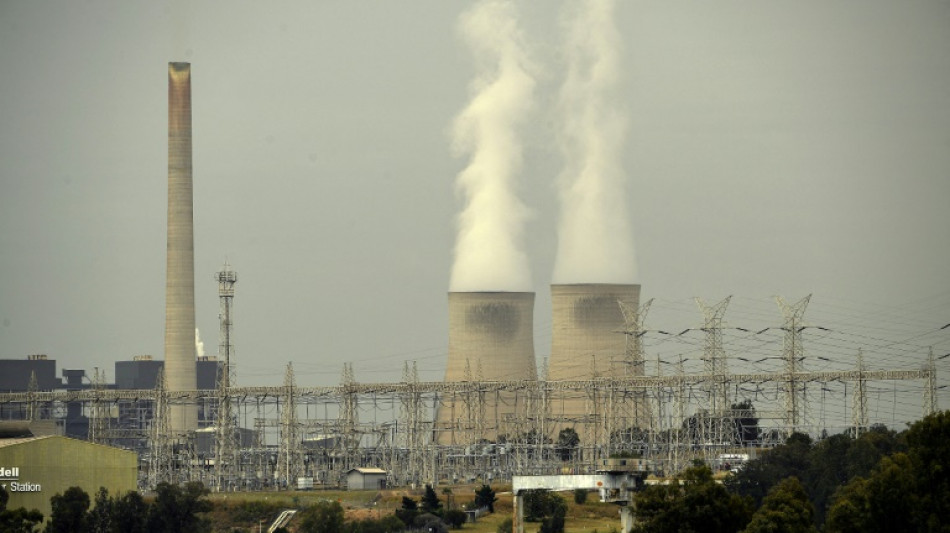
-
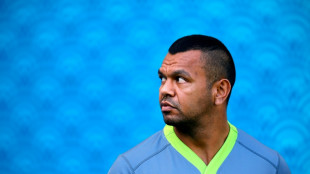 Veteran Wallaby Beale set for long-awaited injury return
Veteran Wallaby Beale set for long-awaited injury return
-
Syria's Druze take up arms to defend their town against Islamists

-
 Tesla sales plunge further in France, down 59% in April
Tesla sales plunge further in France, down 59% in April
-
US calls on India and Pakistan to 'de-escalate'

-
 Israel reopens key roads as firefighters battle blaze
Israel reopens key roads as firefighters battle blaze
-
Europe far-right surge masks divisions

-
 James will mull NBA future after Lakers playoff exit
James will mull NBA future after Lakers playoff exit
-
Ukraine's chief rabbi sings plea to Trump to side with Kyiv

-
 Australian mushroom meal victim 'hunched' in pain, court hears
Australian mushroom meal victim 'hunched' in pain, court hears
-
Lakers dumped out of playoffs by Wolves, Rockets rout Warriors

-
 Booming tourism and climate change threaten Albania's coast
Booming tourism and climate change threaten Albania's coast
-
US reaching out to China for tariff talks: Beijing state media

-
 Tariffs prompt Bank of Japan to lower growth forecasts
Tariffs prompt Bank of Japan to lower growth forecasts
-
Kiss faces little time to set Wallabies on path to home World Cup glory

-
 Serbian students, unions join forces for anti-corruption protest
Serbian students, unions join forces for anti-corruption protest
-
Slow and easily beaten -- Messi's Miami project risks global embarrassment

-
 Fan in hospital after falling to field at Pirates game
Fan in hospital after falling to field at Pirates game
-
Nuclear power sparks Australian election battle

-
 Tokyo stocks rise as BoJ holds rates steady
Tokyo stocks rise as BoJ holds rates steady
-
Bank of Japan holds rates, lowers growth forecasts

-
 'Sleeping giants' Bordeaux-Begles awaken before Champions Cup semis
'Sleeping giants' Bordeaux-Begles awaken before Champions Cup semis
-
Napoli eye Scudetto as Inter hope for post-Barca bounce-back

-
 Germany's 'absolutely insane' second tier rivalling Europe's best
Germany's 'absolutely insane' second tier rivalling Europe's best
-
PSG minds on Arsenal return as French clubs scrap for Champions League places

-
 UK WWII veteran remembers joy of war's end, 80 years on
UK WWII veteran remembers joy of war's end, 80 years on
-
Myanmar junta lets post-quake truce expire

-
 Rockets romp past Warriors to extend NBA playoff series
Rockets romp past Warriors to extend NBA playoff series
-
Messi, Inter Miami CONCACAF Cup dream over as Vancouver advance

-
 UN body warns over Trump's deep-sea mining order
UN body warns over Trump's deep-sea mining order
-
UK local elections test big two parties

-
 US judge says Apple defied order in App Store case
US judge says Apple defied order in App Store case
-
Seventeen years later, Brood XIV cicadas emerge in US

-
 Scorching 1,500m return for Olympic great Ledecky in Florida
Scorching 1,500m return for Olympic great Ledecky in Florida
-
Israel's Netanyahu warns wildfires could reach Jerusalem

-
 Istanbul lockdown aims to prevent May Day marches
Istanbul lockdown aims to prevent May Day marches
-
Australian guard Daniels of Hawks named NBA's most improved

-
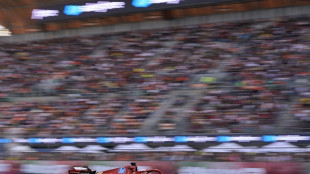 Mexico City to host F1 races until 2028
Mexico City to host F1 races until 2028
-
Morales vows no surrender in bid to reclaim Bolivian presidency
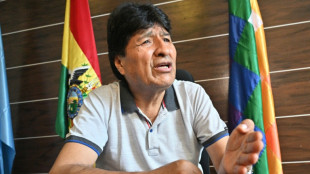
-
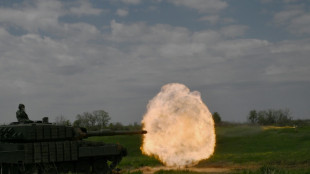 Ukraine, US sign minerals deal, tying Trump to Kyiv
Ukraine, US sign minerals deal, tying Trump to Kyiv
-
Phenomenons like Yamal born every 50 years: Inter's Inzaghi

-
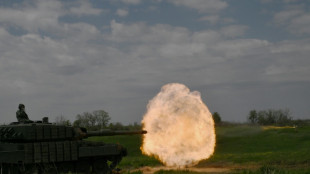 Ukraine, US say minerals deal ready as Kyiv hails sharing
Ukraine, US say minerals deal ready as Kyiv hails sharing
-
Global stocks mostly rise following mixed economic data
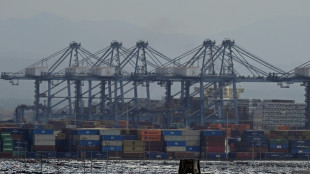
-
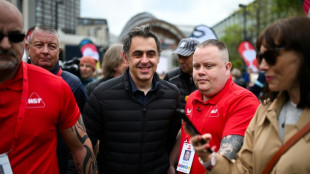 O'Sullivan says he must play better to win eighth snooker world title after seeing off Si Jiahui
O'Sullivan says he must play better to win eighth snooker world title after seeing off Si Jiahui
-
Sabalenka eases past Kostyuk into Madrid Open semis

-
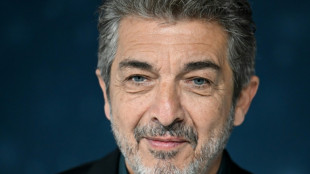 Netflix's 'The Eternaut' echoes fight against tyranny: actor Ricardo Darin
Netflix's 'The Eternaut' echoes fight against tyranny: actor Ricardo Darin
-
US economy unexpectedly shrinks, Trump blames Biden
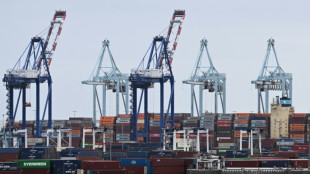
-
 Barca fight back against Inter in sensational semi-final draw
Barca fight back against Inter in sensational semi-final draw
-
Meta quarterly profit climbs despite big cloud spending
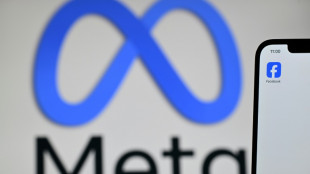
-
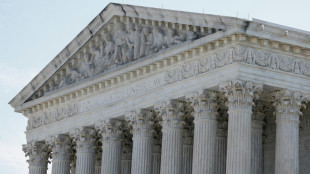 US Supreme Court weighs public funding of religious charter school
US Supreme Court weighs public funding of religious charter school
-
Climate change made fire conditions twice as likely in South Korea blazes: study
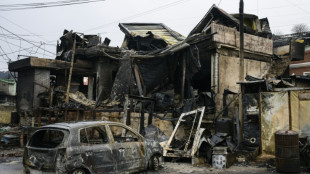

Nuclear power sparks Australian election battle
Rich in solar and wind power, and bulging in critical minerals for renewable energy technology, Australia touts itself as a leader in the race to net zero carbon emissions.
But a political battle is being waged ahead of Saturday's elections over whether to change Australia's trajectory and add nuclear reactors to the mix for the first time.
The row is reminiscent of the "climate wars" -- a years-long political face-off over the need to slash carbon emissions -- that Prime Minister Anthony Albanese vowed to end when he took power three years ago.
Australia sits on some of the world's largest uranium reserves but it has legally banned nuclear power generation for a quarter of a century.
In the run-up to Saturday's vote, conservative opposition leader Peter Dutton announced a US$200 billion plan to build seven large-scale nuclear reactors by 2050.
His proposal would ramp up gas production, slow the rollout of solar and wind projects, and ditch the clean energy goals set by Albanese's centre-left government.
Dutton says nuclear power would be cheaper and more reliable than renewable energy.
"I haven't committed to nuclear energy for votes. I committed to it because it's in the best interest of our country," he said in a televised leaders' debate.
Interest in nuclear power is growing internationally as nations struggle to cut their dependence on fossil fuels.
Thirty-one countries including the United States, France and Britain have signed up to a pledge to triple nuclear energy capacity by 2050.
- Slow, costly -
Australia is a fossil fuel powerhouse with vast reserves of coal and gas but it is also drenched in sun, with a broad landscape to accommodate wind turbines and solar panels.
The national science agency CSIRO estimates that the nuclear option would be 50 percent more expensive for Australia than renewable energy and take at least 15 years to become operational.
"The total development lead time needed for nuclear means it cannot play a major role in electricity sector emission abatement," it said.
Even countries with decades of experience in nuclear power generation struggle to get plants running on time and on budget.
France started its latest reactor Flamanville 3 in December -- 12 years behind schedule and about 10 billion euros (US$11 billion) beyond its original three-billion-euro budget.
Albanese has embraced the global push towards decarbonisation, pouring public money into the renewable sector.
The share of renewable energy in Australia's electricity generation has increased to record highs in recent years, contributing 35 percent in 2023, government data shows.
- 'Dislocation and rupture' -
The energy industry has largely backed a renewables-first pathway as ageing coal-fired plants are retired.
"We are in a position now where coal-fired power stations are closing -- and they have done a great job for a long time. But they are old and need to be replaced by something," said Clean Energy Council spokesperson Chris O'Keefe.
"The best economic response for Australia right now is to continue on the path we are on. That is, building batteries, solar farms, wind farms," he told AFP.
"What we are seeing is a situation where nuclear energy is being used as an idea to placate the fossil fuel industry and the people they have been traditionally aligned with, but the problem is it will not deliver a single electron for close to two decades," he said.
Dave Sweeney, nuclear power analyst at the Australian Conservation Foundation, said switching the energy strategy now would cause "economic dislocation and rupture".
"Why change horses from renewables when you are halfway there?" Sweeney said. "This is a 1950s piece of policy that is promoting a 1950s sense of technology."
- 'Outdated prohibitions' -
If Dutton's conservative coalition wins the election there would be strong community, local government and stakeholder pushback to nuclear reactors being built, Sweeney predicted.
"It would cause uncertainty, contest, fights and a lack of action around secure and clean energy. We would be back to hostile and conflict-fuelled and unproductive climate and energy wars," Sweeney said.
Still, nuclear supporters say the spotlight on the issue is long overdue.
"Our decades-old nuclear ban no longer reflects the realities of modern reactor technology or the shifting attitudes of Australians," said Kirsty Braybon, a university academic and nuclear law expert at the Nuclear for Australia lobby group.
While other countries were moving ahead with nuclear, Australia was "held back by outdated prohibitions that stifle innovation, jobs and the chance to power a cleaner future", she said.
L.Stucki--VB
